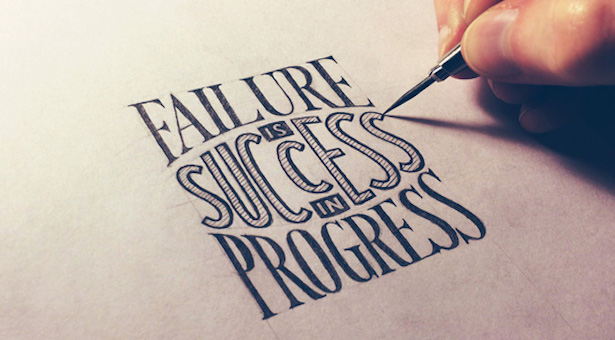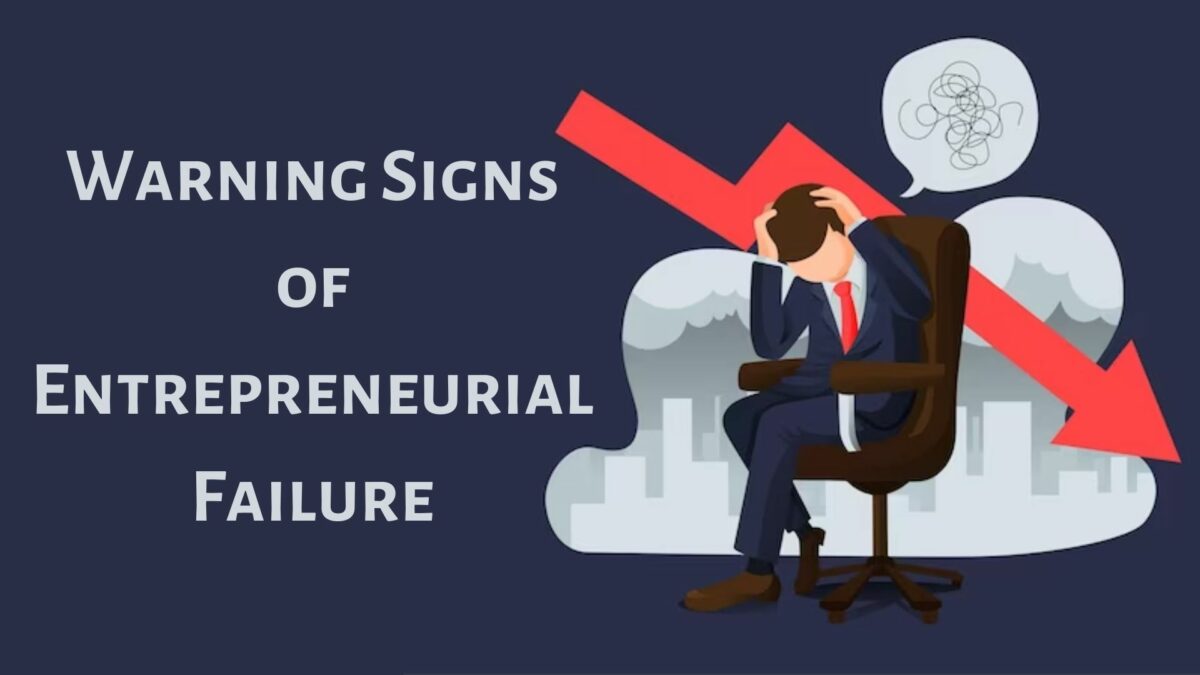“I never make stupid mistakes. Only very, very clever ones.”
–John Peel
We all like to think that we’re special and different from everyone else. I’m uniquely unique, darn it! I’m a left-hander, a type B person who was in the military, and I’m a serial entrepreneur.
I also had a history of entrepreneurial false starts before I hit one out of the park.
That makes me a rare person indeed.
Common “wisdom” states that it takes the average successful entrepreneur 2 or 3 failures before he/she gets one right. The failed entrepreneur gains experience about what doesn’t work and supposedly learns from his failures and doesn’t make the same mistakes twice. Eventually, if you eliminate enough mistakes, you have no choice but to succeed.
At least, that’s what the folk wisdom says.
Another vein of folk wisdom regarding entrepreneurship says that successful entrepreneurs will be able to replicate their successes in subsequent ventures, and that the “portfolio entrepreneur” (usually on the board or an angel investor in several startups) will have seen a variety of situations and know what to do based on the breadth of experience – much like a McKinsey consultant should be able to do.
According to recently released research from the Centre for European Economic Research and the University of Birmingham, England, the folk wisdom is wrong.
Why the Wisdom of the Crowds Regarding Entrepreneurship is Wrong
The CEER study evaluated 8,400 German startups to see if there was any link between prior entrepreneurial experience and subsequent success in later ventures. Of those startups, 11% were started by entrepreneurs who had previously failed in their entrepreneurial ventures, 9% were portfolio entrepreneurs, 6% were entrepreneurs who had previously succeeded, and 1% were started by entrepreneurs who had both failed and succeeded previously.
I am the 1%.
Serial and portfolio entrepreneurs are no more likely to succeed than novices

The study showed no statistically significant correlation between previous successful entrepreneurial experience and the ability to run a second successful company. Novice entrepreneurs were just as likely to succeed (or fail) as their more experienced counterparts.
Furthermore, previously successful entrepreneurs were no less likely to avoid bankruptcy than their novice counterparts. To compound the surprise, entrepreneurs who had mixed results were more likely to end up in bankruptcy than successful entrepreneurs or novices.
While the findings don’t delve into the reasons for the lack of success of these entrepreneurial veterans, one can posit some theories for the subsequent shortcomings:
- Luck. Just as in investing in the stock market, it takes some amount of luck to have a successful entrepreneurial venture. I harbor no illusions that I was lucky to have walked by a booth manned by a competitor who was in an acquisitive mood to get the ball rolling for my eventual sale of most of the shares in my previous startup. Had I decided to go to another session or go to the bar rather than walk the exhibit floor in that conference, who knows what might have happened. While we were positioned at the time to take advantage of that serendipitous moment, and it was our work that created the moment of luck, it was still a moment of luck. Were I to start up another company with the intent of being acquired or turning it into a cash cow, I might not be so lucky.
- The experience doesn’t apply to subsequent ventures. Even in starting up ventures in the same industry or vertical, some of the lessons that these entrepreneurs learned in making the first venture successful won’t pertain to their new venture. They’ll try the same tricks that worked the first time, and, insistent that they worked the first time, the entrepreneurs can’t adjust when those tricks don’t work the second time.
- The market changes. Some of the perceived benefit of older, wiser heads is that they bring a Rolodex of contacts. That Rolodex may have been valuable previously, but some of the contacts might not be useful anymore. They may have changed roles or they don’t need what the new venture offers. If I were to start another technology company, I don’t know what value my old contacts would have, particularly since they’re now a few years old, and in technology, those may as well be dog years.
- Hubris. As someone with a big entrepreneurial win under my belt, it’s hard not to think that I have the Midas touch. The memory of a previous success could cause a long and deep stubborn streak and prevent entrepreneurs from making strategic changes necessary to create the conditions for success in their new firms.
Serial failed entrepreneurs are more likely to fail again
Despite our belief that we can learn from our mistakes, the data shows that failed entrepreneurs are not only more likely to fail again in their subsequent entrepreneurial ventures, but also that they’re more likely to end up in bankruptcy. Double whammy. Additionally, serial failed entrepreneurs who think they spot an opportunity and start a venture to chase that opportunity are even more likely to fail and serial failed entrepreneurs who start a venture because they need to generate income that they’d normally get from a job are more likely than anyone else to end up in bankruptcy.
The last finding in particular is unsurprising. Failed entrepreneurs, according to the data, simply do not have the skills and abilities needed to succeed in entrepreneurship. Compound that lack of skill with financial desperation borne from needing to make something happen with the entrepreneurial venture, and it’s a greased slope towards financial doom and getting to find out what chapter of the bankruptcy code applies to them.
Startups born from the need to replace income are more likely to fail

There are two main reasons that people start new ventures: they perceive an opportunity in the market and start a company to meet that need, or they need to get some cash coming into the coffers because they either don’t have a job or the job that they have doesn’t bring in enough money.
The former reason portends some possibility of success. The market is crying out for a solution to a problem or a pain point, and the entrepreneur hopes to provide that solution. If the entrepreneur does well at solving the problem, telling his story, and getting the right amount of fairy dust sprinkled on him, then he’ll succeed.
The latter reason portends doom. People aren’t going to pay someone just because he needs the money. That’s called charity or welfare, and the market doesn’t provide that service. Therefore, the story of “I lost my job and had to start a small business” is just that – a story. There is no strong underlying reason for people to part with their money for this type of entrepreneurial venture because it doesn’t provide anything that people want. It provides an outlet for need, which leads to desperation, which leads to sales buck scent – the scent that doesn’t lead to revenues.
If you need money, don’t start a business. Get a job. The data is overwhelming in this conclusion.
The two factors that lead to a marginal improvement in chances of success
At this point, you might think that entrepreneurship is all doom and gloom and wonder how anyone succeeds. After all, those who failed didn’t learn from their mistakes and those who succeeded don’t seem able to apply what worked the first time to a subsequent venture, is there anyone who can succeed?
The answer is yes, although it’s not a resounding yes, either.
According to the CEER research, there are two factors that favor entrepreneurs in their quest to succeed:
- Significant financial resources. Although not every company that goes out and raises a $50 million venture capital round succeeds, there is a correlation, albeit a weak one, between having enough money and succeeding. The simple explanation is that the money provides more runway for the venture to gain traction in the market and to grow. A more complicated explanation is that a lack of funding leads to shoddy product development that cuts corners and doesn’t really address the needs of the market. It also leads to desperation in business development because the entrepreneur needs money now and can’t wait for the normal lead cycles to happen. I know that feeling from losing a big contract, and while we were never on the brink, we could see the brink, and it’s a stressful place to be.
- Education, implying ability. The researchers intentionally separated out education and experience in determining success factors for entrepreneurs. The common thread amongst the successes was higher level education, meaning, at least from their findings, that these entrepreneurs had the mental acuity to understand the situation they faced and adapt their companies to those conditions. That’s not the same as experience. A bad heart surgeon can botch surgery after surgery and not get any better. But, a smart surgeon can detect and avoid errors. It’s the same with a smart entrepreneur – probably the reason that the Y Combinator looks for adept founders instead of experienced founders.
The psychology of the failures

Since we’re humans, we’re naturally prone to our own cognitive biases, and entrepreneurs are no different in their susceptibility to fall for mental shortcuts.
There are a few psychological glitches that may contribute to the lack of success of these entrepreneurs:
- Dunning-Kruger effect. This would work against both successful and failed entrepreneurs. The Dunning-Kruger effect, simply put, means that you think that you’re better at something than you actually are. It’s why 90% of drivers think that they’re above average and why most people think that they’re better looking than everyone else thinks they are (well, except, of course, you…you’re handsome!). If we think that we can do something better than the other guy, then we’ll concoct a story to tell ourselves that, yes, we can do it better and we are better. We’ll ride that misperception right into the ground, failing to acknowledge that perhaps we simply don’t have the skill set necessary to be a successful entrepreneur.
- External locus of control. When we exhibit an external locus of control, we believe that external factors cause the outcomes in our lives. Entrepreneurs who have an external locus of control think that it’s merely a case of bad luck that has caused their ventures to fail rather than their own shortcomings. Rather than working to improve their shortcomings or to adjust to the realities of the market, they blame the gods, stars, or reality TV for the lack of cash coming into the bank account. They turn a blind eye to the ground truth that is evidenced in their P&L statements and think that prosperity is right around the corner.
- Confirmation bias. Confirmation bias means that we selectively find or remember information that conforms to our beliefs. Failed entrepreneurs will remember the few things that went well with the previous venture to tell themselves that this time it’s different and they’ll succeed. Successful entrepreneurs will think that it was what they did rather than, perhaps, being at the right place at the right time through serendipity, that made them successful and will doggedly pursue the same approaches in an unsuccessful encore.
A final success factor: the inverse U of age
The sexy media stories tell of the twentysomething entrepreneur who starts up a company and three years later sells it for a gazillion dollars.
The reality, according to the data, is that the age sweet spot for entrepreneurs is in their late 30s to mid 50s. Other variables support this notion: both industry experience and higher vocational qualifications (e.g., credentials) also positively impact the chances of survival. Additionally, as we discussed previously, having enough financial backing to provide runway or to avoid taking shortcuts due to budgetary constraints are indicative of increased chances of success. More seasoned entrepreneurs are more likely to have all of these factors in their favor.
Conclusions
- Get a job instead of starting a venture.
- Keep your job.
- Save lots of money.
- Save more money.
- Get credentials.
- Don’t quit your job too early.
- Start something because you think there’s an opportunity, not because you need the money.
- If you don’t succeed, DON’T try try again.
- Keep an open mind. You don’t know it all, and the market will tell you if you’re doing the right thing.
- Chances are pretty good that you’re not doing the right thing.
- Don’t overinvest in your startup.
- Don’t pin your hopes on entrepreneurship providing the magic cure-all for financial problems.
- Entrepreneurship is not the right place for on-the-job training as an entrepreneur.
- If you do hit a home run, don’t go back for a second round. You’re almost certainly not going to catch lightning twice.
Enough doom and gloom? Have I quashed any entrepreneurial dreams? Let’s talk about it in the comments below!
Author Profile
- John Davis is a nationally recognized expert on credit reporting, credit scoring, and identity theft. He has written four books about his expertise in the field and has been featured extensively in numerous media outlets such as The Wall Street Journal, The Washington Post, CNN, CBS News, CNBC, Fox Business, and many more. With over 20 years of experience helping consumers understand their credit and identity protection rights, John is passionate about empowering people to take control of their finances. He works with financial institutions to develop consumer-friendly policies that promote financial literacy and responsible borrowing habits.
Latest entries
 Low Income GrantsSeptember 25, 2023How to Get a Free Government Phone: A Step-by-Step Guide
Low Income GrantsSeptember 25, 2023How to Get a Free Government Phone: A Step-by-Step Guide Low Income GrantsSeptember 25, 2023Dental Charities That Help With Dental Costs
Low Income GrantsSeptember 25, 2023Dental Charities That Help With Dental Costs Low Income GrantsSeptember 25, 2023Low-Cost Hearing Aids for Seniors: A Comprehensive Guide
Low Income GrantsSeptember 25, 2023Low-Cost Hearing Aids for Seniors: A Comprehensive Guide Low Income GrantsSeptember 25, 2023Second Chance Apartments that Accept Evictions: A Comprehensive Guide
Low Income GrantsSeptember 25, 2023Second Chance Apartments that Accept Evictions: A Comprehensive Guide

